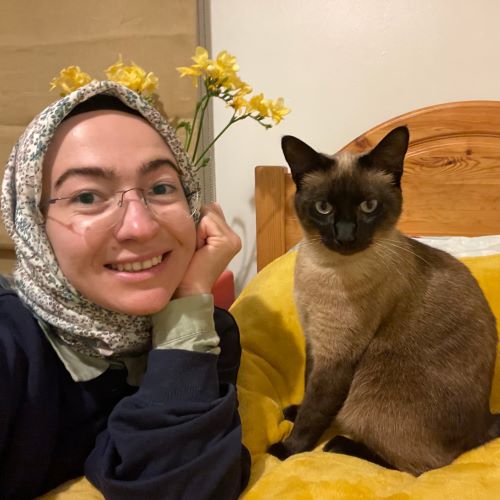Sevda Kartal, Law School, Faculty of HASS, has recently submitted her PhD thesis. In the below post she shares her perspective as an international student on wellbeing challenges and imposter syndrome.
All the materials I kept an eye on throughout my viva preparation were related to motivational and encouraging content. They were all incredibly supportive, especially when I was feeling anxious about whether I was good enough to pass the viva and considering the kinds of corrections that might be anticipated.
I submitted my thesis almost 5 weeks ago and I am currently struggling to open and reread it. I think this is mostly because of the state of my psychological health during the time I submitted. I literally felt sick whilst reviewing my thesis in the last month of my PhD. While I was trying to plan for my viva preparation, I came across one of the blogs written about the PhD submission and until I read this blog, I genuinely thought I was the only one who sat and cried in the library for the two months leading up to my submission.
As an international student and being the kind of person I am, blaming myself for everything and never feeling that I am doing well enough, the final stage of the PhD might turn out to be a nightmare. I worked very hard for the last two years of my PhD. But these two years were not a pleasant time. While pursuing my research, I just focused on motivating and achieving this unpleasant task. Most of the time, I felt stressed, overworked, confused, lacking direction and help, and I suffered from very severe imposter syndrome. All this negativity started impacting my mental and emotional wellbeing. Even when you attempt to motivate yourself, the questioning from your supervisors about the potential consequences of failure can weigh heavily on your confidence. This can lead to a self-doubt spiral, where you start believing your supervisors are correct, ultimately blaming yourself for every setback… don’t ask how I know that…
There is a well-being service provided by the University; I contacted them during COVID-19 and just before submitting my thesis. There is also education welfare support in Doctoral College, and they also offer support in such situations. The third option I used is to get in contact with a personal tutor from your department for any problems that you cannot talk to your supervisors about. I contacted my personal tutor and honestly, she was very helpful, at least I felt that she had empathy for the difficult journey I had been on. It is easy to advise someone to contact the well-being team, but it is not so easy to ask them for help. This is especially true for international students: sometimes you want to hear from someone has compassion and understanding for you and your individual situation; you don’t want to be given what seems like automated advice. Furthermore, it is not easy to talk about your feelings in your second language.
It is often said: ‘Everyone has a unique PhD process; do not compare yourself with others.’ This is absolutely right. But the PhD is a very tricky thing. It is also not easy if you isolate yourself from others and don’t hear others’ experiences. Even though we all have different processes, I find it very helpful to work with a group of PhDs when I completely lose my motivation and beliefs. After the COVID-19 trauma, I found working in the library with people more useful. The group of PhDs working around me kept me more motivated. Sharing personal experiences about supervisors either good or bad, study tips, etc. are all very helpful and supportive. On the other hand, there was a stage when I felt really overwhelmed and unsuccessful, and during this time PhDs around made me feel worse. The only conversation between us turned out to be about problems and challenges and endless comparisons of the process. I think I did my best; I asked my friends to give me some space and unplugged myself a bit from this environment.
While none of the resources offered a perfect solution to my problems, each taught me valuable lessons about myself and my situation, highlighting the variability of their effectiveness and the unpredictability of what would work best on any given day as well as the individual nature of the PhD process. Unfortunately, it was a bit of a ‘if at first you don’t succeed try and try again’ type situation and sometimes it went better than others. I think what I am trying to say is that perseverance and adaptability are crucial in navigating the individual nature of the PhD process, as success often requires learning from various imperfect solutions and continuously adjusting approaches. Additionally, every person’s experience is unique, making it unproductive to compare oneself to others. It’s essential to remember that these difficulties are temporary, and the future won’t necessarily be what you think. Everything will eventually pass, and you’ll find yourself in a different and, hopefully, more positive place.

